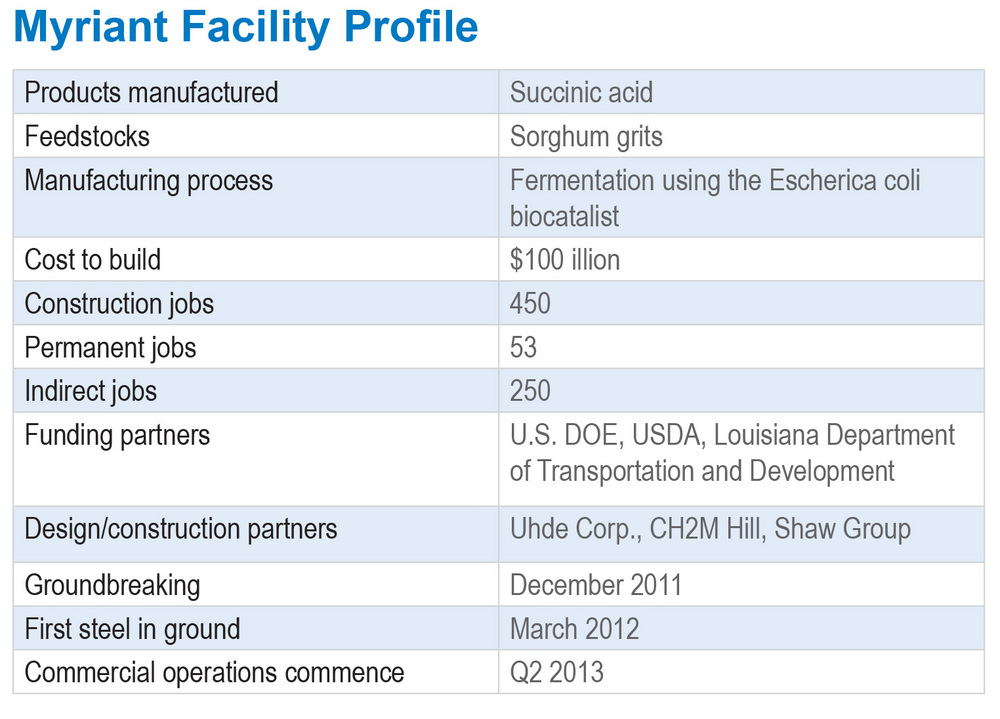Plant Profile: Myriant Inc.




April 2, 2013
BY Tim Portz
As the construction of Myriant Inc.’s $100 million biosuccinic acid production facility draws to a close in the river town of Lake Providence, La., the facility’s commission stage is well- underway. While the 450-plus construction jobs that were created when this project officially broke ground in December of 2011 will move on to other projects, 53 permanent jobs will be established once the facility becomes operational. Additionally, the sorghum growers in the delivery radius of the facility will enjoy an additional market opportunity for their crop.
The process used to convert sugars into bio-succinic acid is a biological one requiring a proprietary biocatalyst that creates succinic acid by virtue of its own metabolic process. The Lake Providence facility has been designed to efficiently carry out this process at commercial scale, producing nearly 30 million pounds of biosuccinic acid per year. Biosuccinic acid is an important platform chemical and can be furthered refined into plastics, urethanes and coatings.
"This an exciting, yet extremely busy time for the entire team as we work to bring the plant online," says Cenan Ozmeral, Myriant's chief operating officer. "Plant commissioning is never as easy as one hopes. That said, Myriant has taken a deliberate and step-wise approach to scaling our proprietary process, and we benefit from having an experienced engineering and operations team that has built and commissioned dozens of plants over the last 20 years.”
Advertisement
Advertisement
Ozmeral adds that the company firmly believes it will be successful bringing online the first biosuccinic acid chemical plant in the U.S. “We very much look forward to reporting that progress."
Author: Tim Portz
Executive Editor, Biomass Magazine
651-398-9154
tportz@bbiinternational.com
Advertisement
Advertisement
Related Stories
The U.S. Department of Energy Bioenergy Technologies Office (BETO) announced up to $23 million in funding to support research and development (R&D) of domestic chemicals and fuels from biomass and waste resources.
The U.S. DOE has announced its intent to issue funding to support high-impact research and development (R&D) projects in two priority areas: sustainable propane and renewable chemicals and algal system cultivation and preprocessing.
Sens. Sherrod Brown, D-Ohio, and Pete Ricketts, R-Neb., in August introduced the Renewable Chemicals Act, a bill that aims to create a tax credit to support the production of biobased chemicals.
The Chemical Catalysis for Bioenergy Consortium, a consortium of the U.S. DOE’s Bioenergy Technologies Office, has launched an effort that aims to gather community input on the development of new biomass processing facilities.
USDA on March 8 celebrated the second annual National Biobased Products Day, a celebration to raise public awareness of biobased products, their benefits and their contributions to the U.S. economy and rural communities.
Upcoming Events










